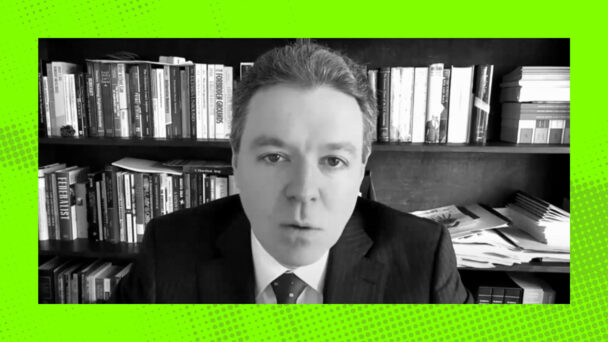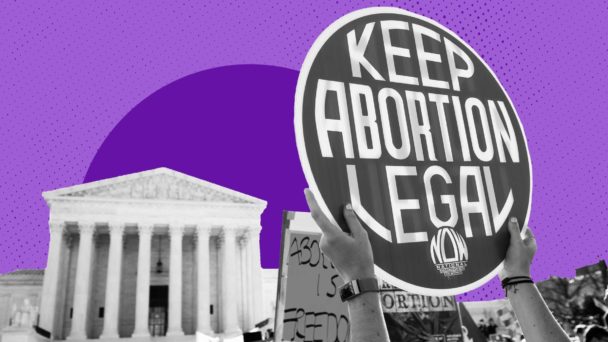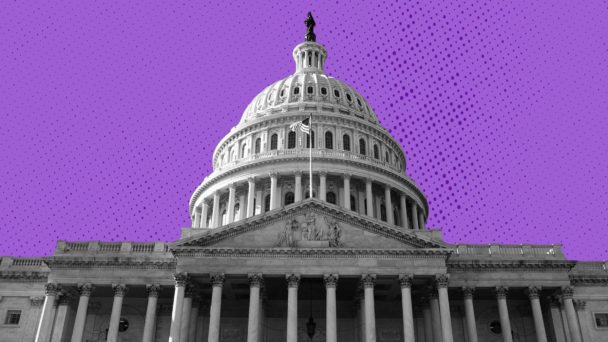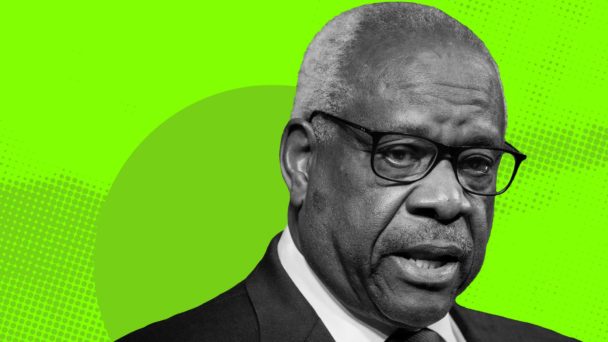This week, The Washington Post published a list of “50 People Shaping Our Society in 2025” that included Texas attorney Jonathan Mitchell, whom it described as “part cultural conservative, part demolition man.”
This is, unfortunately, a fair characterization. Mitchell is influential: He was responsible for the law that effectively ended Roe v. Wade in Texas several months before the Supreme Court formally overturned it. Because that law, known as Senate Bill 8, delegated enforcement of a six-week abortion ban to private citizens filing civil lawsuits, abortion rights groups had no government officials they could sue to block its enforcement. The Court let the law take effect in September 2021. Fearing ruinous lawsuits, clinics stopped providing services, forcing people seeking abortions to travel out-of-state, risk criminalization by ordering abortion pills online, or give birth against their will.
But the Post’s mini-profile—with the headline “A legal renegade challenges the judicial system”—fails to explain the most important way Mitchell has been working to shape society since Dobbs. He’s behind a campaign to resurrect the Comstock Act, a 150-year-old federal anti-obscenity law, to ban abortion nationwide, which is now an imminent threat with Trump back in office.
The piece does note that, since his Texas victory, Mitchell has been working with cities and counties to pass Senate Bill 8-style anti-abortion ordinances that are also enforced by private citizens. If the local lawmakers who pass his bills are sued, he offers to defend them in court for free. But the Post does not tell readers that this ultra-grassroots campaign to try to ban abortion within city limits, known as the “Sanctuary Cities for the Unborn” initiative, is the entire ballgame for abortion access. After the Dobbs decision, Mitchell started inserting references to the Comstock Act in as much of the legislation as possible, especially in states with abortion protections on the books.
Why? The Comstock Act bans sending “obscene” articles, including items “designed, adapted, or intended for producing abortion,” via the mail or common carriers. Today, this language implicates delivery services like UPS and FedEx, and anti-abortion groups hope to use it to shut down telemedicine prescriptions of pills, if not deliveries of all medications and instruments sent to abortion clinics. Mitchell’s goal is to get a Democratic official to challenge an ordinance and appeal it all the way up to the Supreme Court, allowing the 6-3 conservative supermajority to declare that this long-dormant law can be enforced as a nationwide abortion ban.
We know all this because Mitchell told a reporter about it. “From my standpoint, I want to get Comstock to the Supreme Court as quickly as possible,” he said in 2023. And in February of last year, Mitchell admitted to The New York Times that Comstock could ban abortion without the need for Congress to pass any additional legislation. “We don’t need a federal ban when we have Comstock on the books. There’s a smorgasbord of options,” said Mitchell, a lawyer who’s definitely focused on the role of courts, not simply on conservative outcomes. Mark Lee Dickson, another activist involved in Mitchell’s effort, said something similar to the Post in a May 2023 story that explained their partnership. “If a future president were to enforce these federal statutes, then they could shut down every abortion facility in America,” Dickson said.
Yet Mitchell told the Post, “I’m a lawyer, not really an activist.”
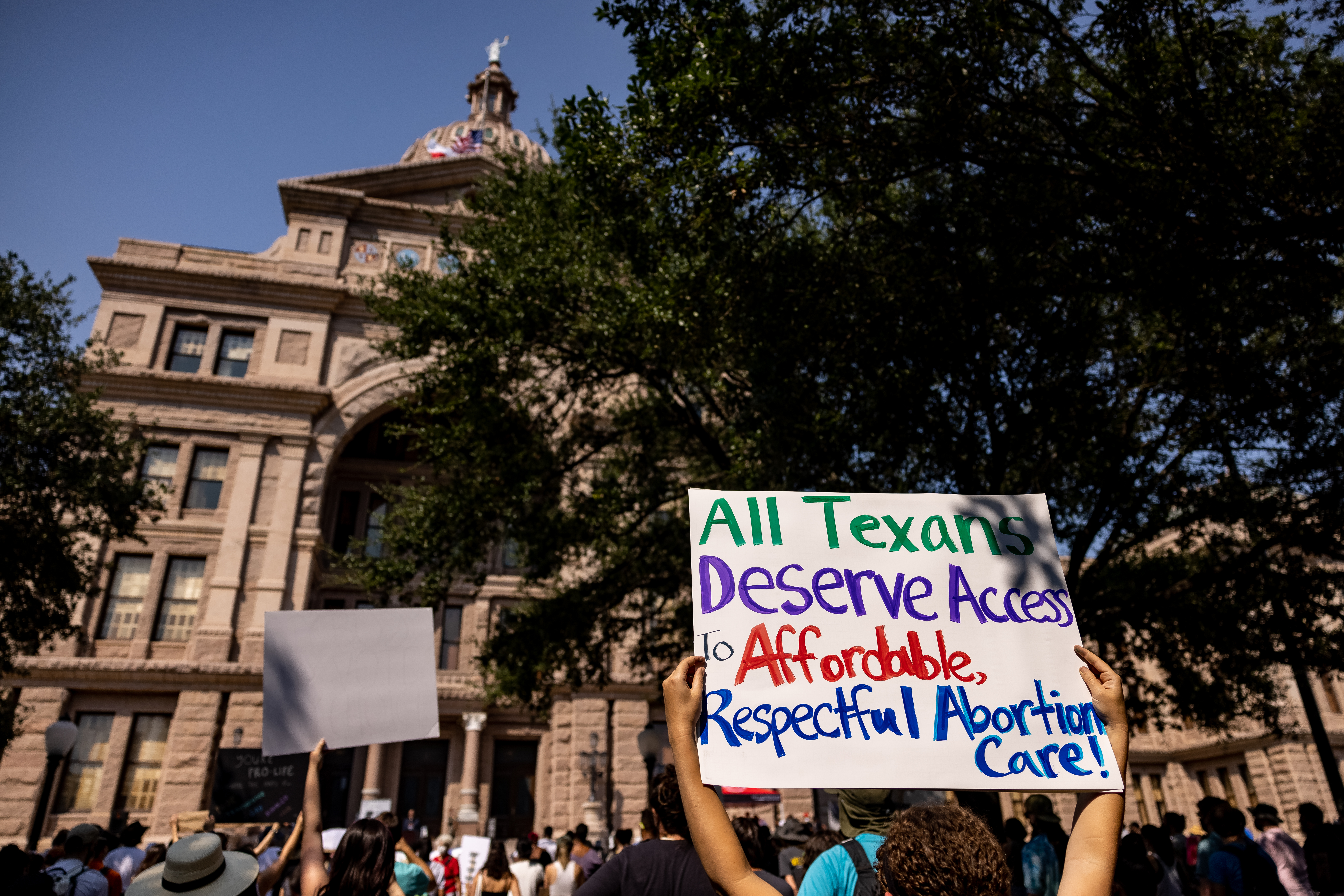
Protest at the Texas State Capitol shortly after the passage of SB8, September 2021 (Photo by Jordan Vonderhaar/Getty Images)
The profile is illustrative of media coverage that treats the law as an intriguing thought exercise for people in classrooms or on stuffy panels, rather than a hammer that can destroy people’s lives. First-time Comstock Act offenders face up to five years in prison plus fines, while repeat violations could result in sentences of up to 10 years. If Trump’s Justice Department were to start enforcing the Comstock Act as a ban on shipping all abortion supplies, it could effectively wipe out the availability of abortion care overnight.
Mitchell’s unmentioned campaign to revive Comstock directly contradicts some of the comments he made to the Post. Take this for instance: “I don’t see how the Supreme Court would have the authority to impose an antiabortion policy any more than a pro-abortion policy,” he said. Mitchell seems to suggest that the justices couldn’t declare a nationwide abortion ban unless Congress had enacted such a policy. But Mitchell very much supports the justices ruling that the government can enforce a federal law that hasn’t been used against abortion providers since the 1930s. To a regular person, that would feel like the Court “imposing” abortion restrictions, but Mitchell wants people to believe this is a meaningful difference. People denied abortions under this scenario can rest easy knowing that a bunch of 19th-century white guys passed a law, rather than conservative justices making something up.
Mitchell also insists to the Post that he’s not trying to turn back the clock on people’s rights, and that the law protects people like never before. “We have legal protections for racial minorities and for women that we didn’t have 100 years ago,” he said.
But it’s difficult to square Mitchell’s claims that he’s not trying to set us all back decades given his other high-profile cases and public statements. He has represented multiple men, some of whom are reportedly abusive, in civil suits intended to terrorize former partners who had abortions without the men’s consent. In 2021, Mitchell referred to the Court’s landmark rulings in Lawrence v. Texas and Obergefell v. Hodges, which expanded the rights of LGBTQ Americans, as “court-invented rights to homosexual behavior and same-sex marriage.” In a 2020 complaint, Mitchell represented employers who objected to covering PrEP drugs for preventing HIV in their health insurance plans because they believe the life-saving medications “encourage homosexual behavior, prostitution, sexual promiscuity, and intravenous drug use.”
In the same complaint, Mitchell argued that birth control is not preventive care because there are other ways to prevent pregnancy—namely, abstinence. “Some women are understandably reluctant to rely on abstinence as a birth-control strategy,” he said. “But an unwillingness to practice abstinence does not create a medical condition that needs to be remedied with ‘preventive care.’”
And as if this Post story weren’t already chock full of self-mythology, Mitchell chose to portray his work in a one-man law firm as a modest operation. “I don’t need to explain to anyone why I’m taking on a project that may not pay so much,” he said. He is right, in a sense, because IRS filings can do the explaining for him: Between 2021 and 2023, America First Legal Foundation, the anti-woke nonprofit founded by now-White House Deputy Chief of Staff Stephen Miller, paid Mitchell more than $1 million. As it turns out, when one of America’s most famous white nationalists is paying you hefty sums to work on cases challenging affirmative action and gender-affirming care, you can afford to advise anti-choice lawmakers free of charge.
The Post story treats Mitchell as little more than an interesting thinker who sped up the end of abortion in Texas; a principled lone ranger following the law wherever it leads him. In reality, his ultraconservative values infect the entirety of his work, which has a mission that he barely conceals elsewhere. Just apparently not when a photoshoot is involved.

